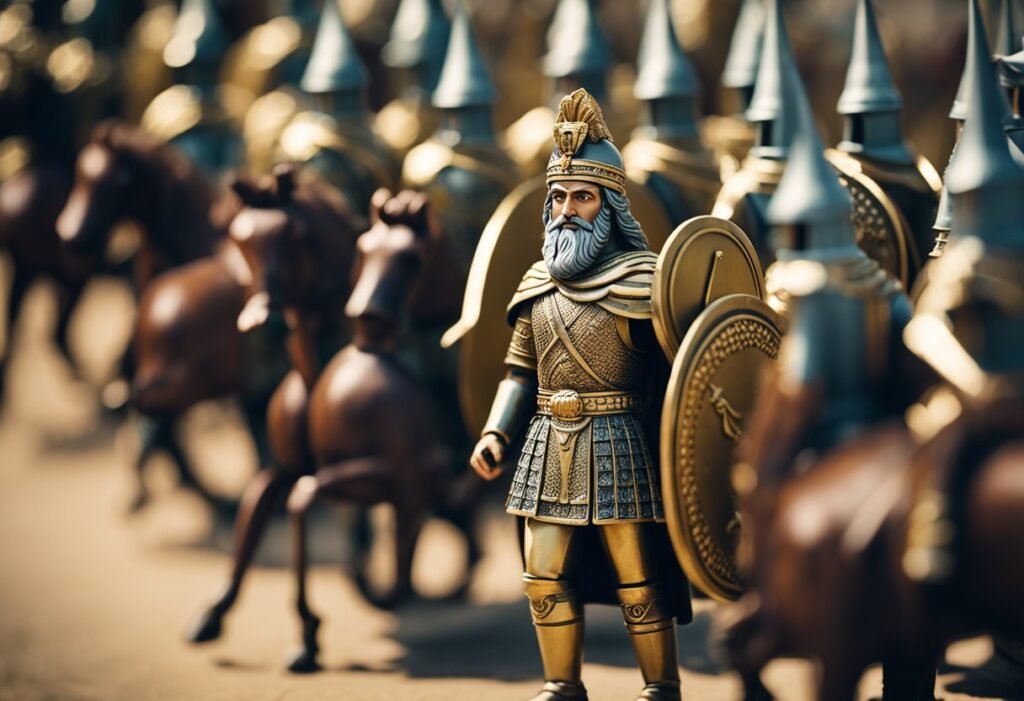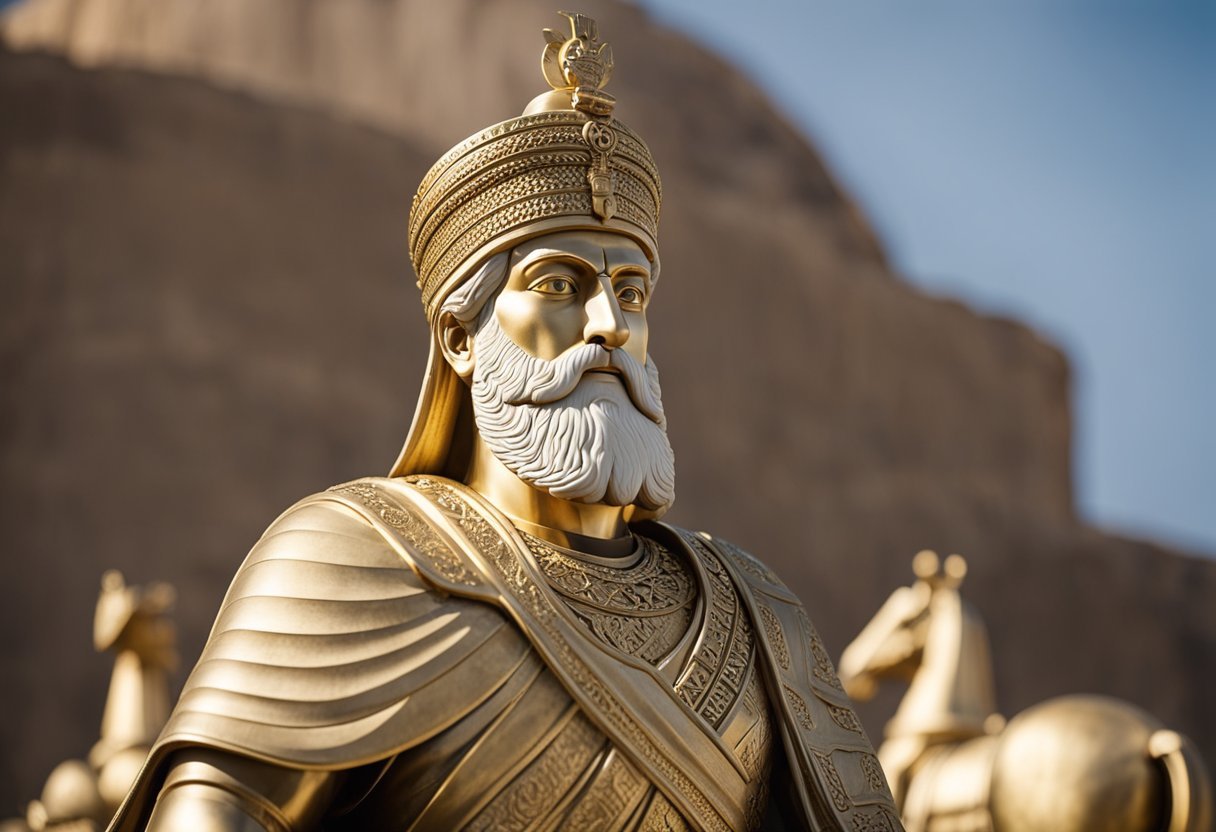Cyrus the Great, known for founding the Achaemenid Empire, stands out as a monumental figure in history. Born between 590 and 580 BCE, he created one of the largest empires the world had ever seen, stretching from the Aegean Sea to the Indus River. His legacy isn’t merely in conquest but also in progressive governance, allowing conquered peoples a significant degree of autonomy.
Cyrus’s reign is notable for his unique approach to rulership. Unlike many conquerors of his time, he is remembered for his merciful rule and the respect he showed towards the cultures and religions of those he conquered. This approach not only helped maintain peace within his vast empire but also won him lasting admiration, even from those who were not Persian.
Moreover, Cyrus the Great is a pivotal figure in various historical texts, including the Bible. His decree allowed the Jewish people to return to Israel after their captivity in Babylon, highlighting his significant impact beyond the battlefield. This combination of military prowess and humanitarian tactics cements Cyrus’s place as a groundbreaking leader in ancient history.
Early Life and Ascension
Born around 600 BCE, Cyrus the Great emerged as a prominent figure in ancient Persia. His early life, ancestry, and subsequent rise to power shape much of our understanding of his significant impact on history.

Birth and Early Years
Cyrus’s exact birthplace is not definitively known, but he was born somewhere within the Median Empire, which is now modern-day Iran. Historical sources suggest his birth occurred between 590 and 580 BCE. His early years were shrouded in legend, partly due to the dream his grandfather, Astyages, had which predicted that Cyrus would overcome him. This led to several attempts by Astyages to eliminate Cyrus.
Ancestry and Heritage
Cyrus hailed from a noble lineage. His grandfather, Astyages, was the last king of the Median Empire. His father, Cambyses I, was the king of Anshan, part of the larger Elamite kingdom. Cyrus’s heritage combined the robust military traditions and cultural practices of both Median and Persian backgrounds, which influenced his later strategies and rulership style.
Rise to Power
Cyrus’s ascent to power began with a revolt against his grandfather, Astyages, in 550 BCE. This rebellion ended the Median dominance and established the Achaemenid Empire. By forming strategic alliances and leading numerous military campaigns, he extended his control over diverse regions including Lydia and Babylonia. Cyrus’s tactical acumen and diplomatic approach solidified his position as a capable and respected ruler.

Reign and Empire Building
Cyrus the Great established the Achaemenid Empire through strategic military campaigns and effective governance. His reign was also marked by innovative cultural and religious policies.
Military Campaigns
Cyrus the Great was a formidable military leader who expanded his empire through a series of crushing victories. He first unified the Persian tribes and conquered the Median Empire.
He then moved westward, defeating Lydia and capturing its wealth. His most notable triumph was the conquest of the Neo-Babylonian Empire in 539 B.C.
These victories not only solidified his rule but also expanded the Achaemenid Empire from the Aegean Sea to the Indus River.
Governance and Administration
Cyrus was known for his effective administrative policies that kept his diverse empire united. He established a centralized government with regional governors, known as satraps, who were responsible for local administration.
This system allowed for efficient tax collection and law enforcement. Cyrus also respected local customs and laws, which helped mitigate rebellion and maintain peace.
His administrative prowess ensured that the vast empire remained cohesive and stable, facilitating trade and communication.
Cultural and Religious Policies
Cyrus the Great is remembered for his tolerance toward different cultures and religions. He allowed conquered peoples to retain their customs and religious practices.
One of his most significant acts was the liberation of the Jews from Babylonian captivity, allowing them to return to their homeland and rebuild their temple.
These policies earned him the respect and loyalty of his subjects, solidifying his legacy as a just and benevolent ruler. His approach set a precedent for future leaders and promoted cultural diversity within the empire.

